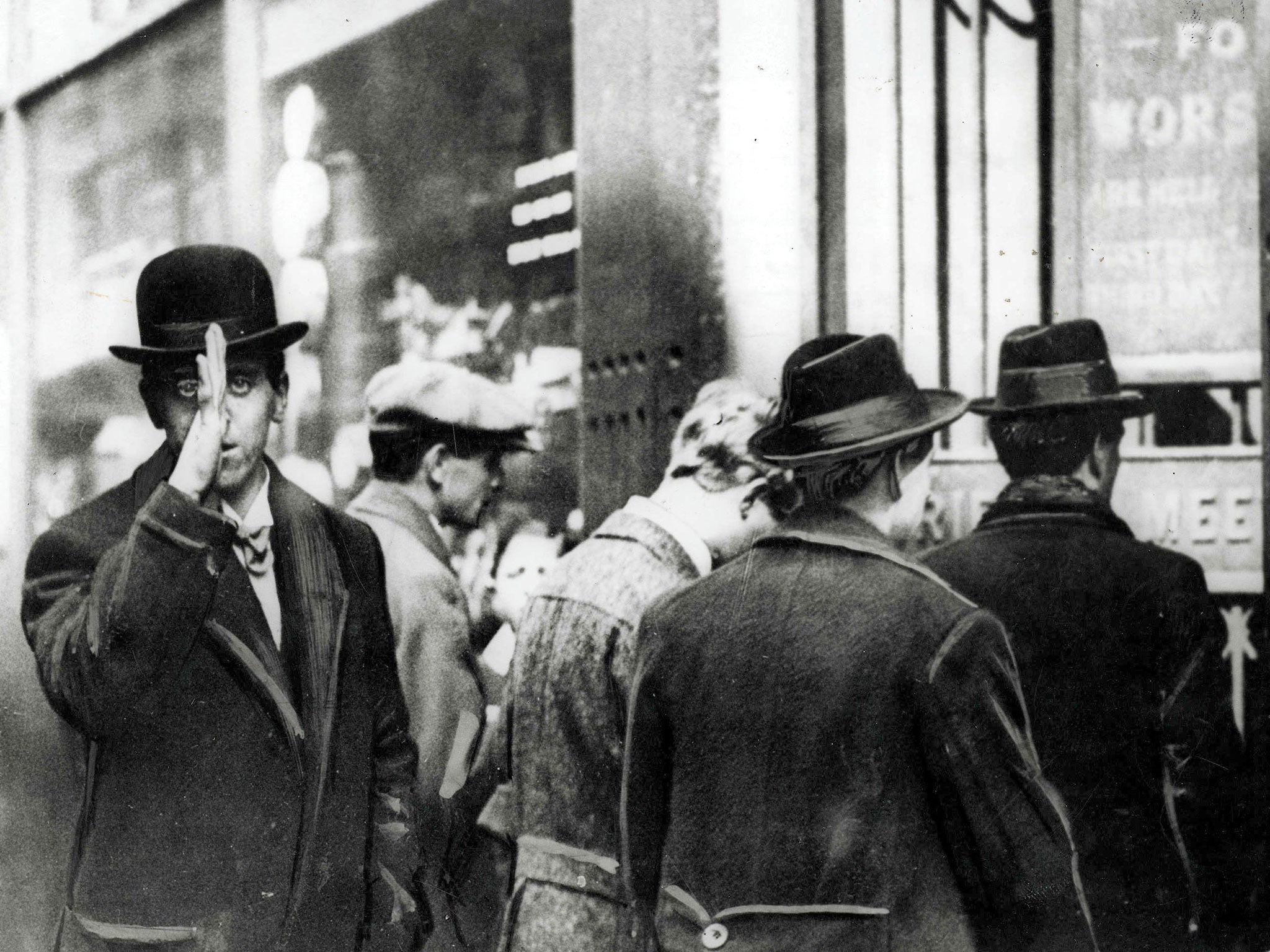Conscientious objectors: A century on, the courage of the First World War 'conchies' is recognised
A new digital archive records their experiences and the punishment they suffered for their principles

In the aftermath of the Battle of Ypres in 1917, Lucy Pearson received a letter on behalf of King George V offering a “plaque and scroll” on behalf of a grateful nation for the loss in combat of her son, Joseph. She turned it down.
The exact reason why Ms Pearson wrote her terse response to the military authorities – “I do not wish you to send plaque or scroll” – is unknown but it is very likely to have related to the fact that her dead child was a conscientious objector.
He and his older brother, John, were pacifists from a Baptist family in Cheshire and had joined the No-Conscription Fellowship, an organisation for conscientious objectors, prior to Britain’s introduction of a compulsory call-up in 1916.
But while John, who was then 24, was court-martialled and eventually saw out the war at Home Office work centres, 22-year-old Joseph was meted out a different – and brutal – fate. After his arrest for failing to answer his call-up papers, Joe was transferred to the notorious Birkenhead Barracks on Merseyside and, despite his refusal to sign the papers enrolling him in the British Army, he was enlisted into the 3rd battalion of the Cheshire regiment.
The soldiers at Birkenhead were known for their unsparing treatment of those who refused to fight on the grounds of belief.
One sergeant major was recorded as saying shortly before Joseph Pearson arrived: “Many conscientious objectors have been sent to this battalion and all have been broken in.” It is almost certain that this “breaking in” is what happened to the young pacifist as one way or another his principles were beaten out of him and he submitted to military service.
By June 1917, Joseph was in France with the British Expeditionary Force fighting at the Battle of Messines in Flanders. By August he was dead, killed in skirmishing around Ypres. Now, the story of Private Pearson and the awful grief of his mother – along with details of 16,499 other conscientious objectors – will be available online as part of a project to tell the story of the bravery of those who chose not to fight, alongside the accounts of those who did.
The new digital database, based entirely on more than 20 years of research by a Huddersfield academic, is being posted by the Imperial War Museum as part of its Lives of the First World War website to detail the lives of 7.6 million people involved in the conflict.
The unique conscientious objector archive collated by Dr Cyril Pearce, a former lecturer at the University of Leeds, details the records of nearly all the British men who refused to go to war on grounds of religious, political, moral or social belief – and in so doing were often punished with imprisonment and opprobrium.
The Pearce Register, which is the world’s most comprehensive list of First World War conscientious objectors, offers a sobering insight into the experiences of those who refused to fight, from serving with ambulance units in France to performing hard labour in Wormwood Scrubs.
John Harvey, a Quaker and a university lecturer who served as an ambulance driver throughout the war, wrote to his father in 1916: “I sincerely believe that the indiscriminate taking of human life is not only morally wrong but an offence against the will of God.”
While vilified during the war and for decades afterwards, the “conchies”, as they were referred to, are now regarded as having had considerable courage in defying the prevailing consensus in a nation at war.
Dan Snow, the historian and broadcaster, said: “The First World War shaped the lives of everyone. Sailors of the Merchant Navy, armament workers, horse wranglers, and countless other people played an enormous role.
“So too did those who refused to fight. They made very brave decisions to stand up to the politicians and generals, and reject their call to arms. Their inclusion is vital if we’re to get a snapshot of society as a whole.”
But the attitudes of those at the time were harsh.
Until January 1916, Britain had relied on volunteers to man its armed forces but stuttering recruitment campaigns forced the government to introduce conscription as the First World War entered its third year.
The law made military service compulsory for all unmarried men aged 18 to 41 with exceptions that included “those who could show a conscientious objection”.
In practice this meant that those refusing to fight had to appear before a local tribunal to argue their case only frequently to be rejected, or ordered to undertake non-combatant – but perilous – roles such as that of stretcher bearer.
Refusal, as Private Pearson is likely to have found out, was treated mercilessly.
George Beardsworth, another CO sent to Birkenhead, who later became a Labour MP, described how he was beaten in a public park in front of a crowd that included his wife for refusing to obey orders in 1916.
He said: “When I refused to mark time two soldiers kicked my legs. When I refused to turn my eyes right someone punched the side of my head… Relays of men, six at a time, ran me round the field punching me.”
Dr Pearce said: “It is impossible to calculate how many men had Joseph Pearson’s experience or that of the other men who had been ‘broken in’. It is clear there was a view that objectors’ principles could be beaten out of them and it is likely Pearson was bullied into signing his army papers. It seemed to me that his family were not best pleased at his treatment.”
Join our commenting forum
Join thought-provoking conversations, follow other Independent readers and see their replies
Comments
Bookmark popover
Removed from bookmarks